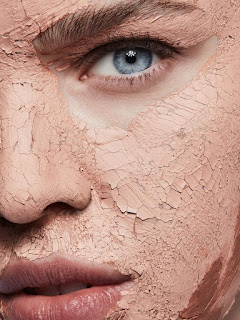Unveiling the Truth: Are Cosmetics Dangerous to the Skin?
Understanding Cosmetic Ingredients:
Cosmetics are formulated using a diverse range of ingredients, each serving a specific purpose. These ingredients can vary widely, ranging from emollients and humectants to preservatives and colorants. While many cosmetic ingredients are deemed safe for use, concerns have been raised regarding certain compounds that may have adverse effects on the skin.
Potential Risks Associated with Cosmetics:
Skin Irritation and Allergic Reactions: Some individuals may experience skin irritation or allergic reactions in response to certain cosmetic ingredients. Common culprits include fragrances, preservatives (such as parabens), and certain dyes. Symptoms may range from mild redness and itching to more severe reactions like dermatitis or eczema.
Acne and Clogged Pores: Certain cosmetic products, especially those with heavy formulations or comedogenic ingredients, may contribute to acne breakouts or clogged pores. Ingredients like mineral oil and lanolin are known to exacerbate acne-prone skin, leading to the formation of blackheads and whiteheads.
Skin Sensitization: Prolonged use of certain cosmetic ingredients may sensitize the skin, making it more prone to irritation or allergic reactions over time. This phenomenon, known as contact sensitization, can occur with ingredients like fragrances, formaldehyde-releasing preservatives, and certain botanical extracts.
Long-Term Health Concerns: While the immediate effects of cosmetics on the skin are well-documented, there is ongoing debate regarding the potential long-term health risks associated with certain ingredients. Compounds like phthalates, triclosan, and heavy metals have raised concerns due to their potential hormonal disruption and carcinogenic properties.
Ensuring Cosmetic Safety:
While concerns regarding cosmetic safety are valid, it's essential to recognize that not all cosmetics are inherently harmful to the skin. Many reputable brands adhere to stringent safety standards and conduct rigorous testing to ensure the efficacy and safety of their products. Additionally, regulatory agencies like the Food and Drug Administration (FDA) and the European Union's Cosmetics Regulation monitor the cosmetic industry, imposing restrictions on certain ingredients and setting maximum allowable concentrations for others.
Tips for Safe Cosmetic Use:
Read Labels Carefully: Familiarize yourself with common cosmetic ingredients and be mindful of any known sensitivities or allergies you may have.
Patch Test New Products: Before applying a new cosmetic product to your face or body, perform a patch test on a small area of skin to check for any adverse reactions.
Choose Hypoallergenic and Non-comedogenic Formulations: Opt for cosmetics labeled as hypoallergenic and non-comedogenic, as these formulations are less likely to cause skin irritation or clogged pores.
Practice Good Hygiene: Ensure that your cosmetic applicators and tools are kept clean and sanitized to prevent bacterial contamination and potential skin infections.
The Verdict:
While the safety of cosmetics for the skin is a complex and multifaceted issue, it's important to approach it with a balanced perspective. While certain ingredients may pose risks for some individuals, the majority of cosmetics are formulated with consumer safety in mind. By staying informed, exercising caution, and choosing products wisely, you can enjoy the benefits of cosmetics while minimizing the potential risks to your skin health.

Comments
Post a Comment